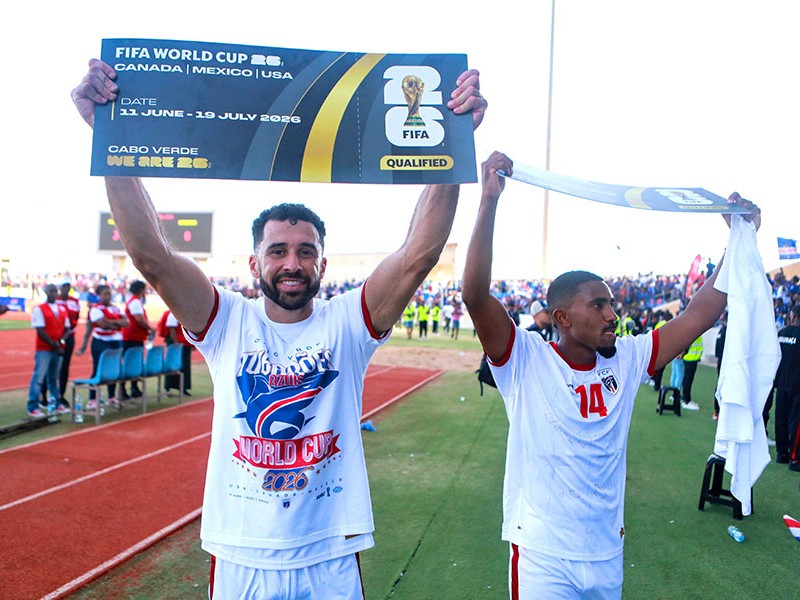Cape Verde has become the second-smallest nation to reach the FIFA World Cup after defeating Eswatini 3-0 in Praia. The victory ensured the Blue Sharks finished first in their qualifying group, surpassing heavyweights such as Cameroon, and booked a place at the 2026 finals.
Dailon Livramento opened the scoring shortly after the restart, turning in a loose ball inside the six-yard box. Willy Semedo followed with a volley to double the lead, and veteran defender Stopira added a late third during stoppage time, sparking celebrations among the 15,000-strong crowd at the National Stadium.
With this result, Cape Verde joins Morocco, Tunisia, Egypt, Algeria, and Ghana as the sixth African nation to secure qualification for next year’s tournament in Canada, Mexico, and the United States.
A small nation with growing football credentials
The island nation, consisting of ten Atlantic islands and home to just under 525,000 people, gained independence from Portugal in 1975. Cape Verde first attempted World Cup qualification for the 2002 tournament but has since steadily improved its footballing profile, reaching the Africa Cup of Nations quarter-finals in both 2013 and 2023. Currently, the team sits 70th in the world rankings.
Only Iceland, which participated in the 2018 World Cup, has a smaller population than Cape Verde to qualify for the tournament. Last month’s 1-0 home victory over Cameroon put the Blue Sharks in a strong position, with just one more win required from their remaining matches to guarantee a World Cup spot.
Their path was not without drama, as a 3-3 draw in Tripoli against Libya earlier in the qualifiers denied them an almost certain stoppage-time victory due to a contentious offside decision. However, the win against Eswatini secured their place definitively.
Strategic approach and diaspora support
Cape Verde has relied on foreign-based players and members of its diaspora to strengthen the national team. Defender Roberto ‘Pico’ Lopes highlighted the importance of Africa now having nine guaranteed World Cup slots, which made finishing first in the group crucial. Lopes himself was first called up via LinkedIn, illustrating the country’s innovative approach to scouting talent.
The squad does not include players from Europe’s top five leagues. Leading scorer Livramento, born in the Netherlands, plays for Casa Pia in Portugal’s Primeira Liga. The team’s success reflects the ability to unite talent scattered around the globe.
Coaching stability drives success
Coach Bubista, a former international player, has managed the team since January 2020, providing continuity and structure. His leadership has forged a disciplined defensive setup, skillful midfield, and potent attacking options, capable of surprising top African teams, as shown by their results against Ghana and Egypt at AFCON 2023.
Despite failing to qualify for this year’s AFCON, the federation retained confidence in Bubista. His steady guidance has now culminated in the Blue Sharks’ historic World Cup qualification, offering the nation the opportunity to be part of football’s biggest stage for the first time.
Looking ahead
Cape Verdeans now anticipate the 2026 World Cup draw in Washington DC, on 4 December, dreaming of challenging some of the world’s top sides. Meanwhile, Cameroon, finishing four points behind in Group D, will likely enter the continental play-offs after concluding their campaign with a 0-0 draw against Angola.
The Blue Sharks’ achievement highlights the growing competitiveness of smaller African nations and the benefits of strategic planning, diaspora engagement, and managerial stability in international football.

